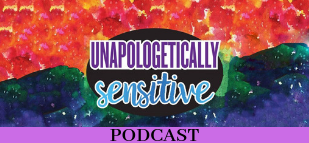SUMMARY
In this conversation, Patricia (she/her) and Alex (they/them) explore their differing relationships with time, the impact of time sensitivities on their friendship, and the insecurities that arise in their podcasting journey. They discuss the importance of communication in relationships, especially regarding time management, and how their neurodivergent experiences shape their perspectives. The conversation also touches on feelings of inadequacy and imposter syndrome, highlighting the challenges of self-acceptance in a world that often prioritizes punctuality and credentials. They share their friendship journey and express their fears and concerns about starting a podcast together. The discussion emphasizes the importance of authenticity and vulnerability in sharing their experiences, as well as the value of normalizing the differences in how neurodivergent individuals navigate the world.
HIGHLIGHTS:
- Patricia and Alex have different relationships with time.
- Communication about feelings is crucial in relationships.
- Their experiences with time agnosia (FKA “time blindness”).
- Societal norms around time can create pressure.
- Imposter syndrome is real.
- Sharing insecurities can alleviate feelings of shame.
- Understanding each other’s perspectives fosters empathy.
- Managing time sensitivities requires self-awareness.
- It’s okay to not meet societal expectations of neuronormative time frames.
- Recognizing personal strengths can help with feelings of inadequacy.
- Executive functioning differences are common among neurodivergent individuals.
- Time management can be perceived as a difference rather than a deficit.
- Building community is essential for neurodivergent people.
- Authenticity and vulnerability foster connection in relationships.
- Self-disclosure in therapy can be a double-edged sword.
- Concerns about how one presents themselves in public spaces are valid.
- Navigating OCD in relationships requires open communication.
- The right audience will resonate with authentic expressions.
- Comparison can lead to feelings of inadequacy, but everyone has unique strengths.
- Normalizing neurodivergent experiences helps reduce stigma.
SOUND BITES
“I have a very different relationship to time than you do.”
“I was having some feelings about it, but wasn’t gonna say anything.”
“I struggle with comparison.”
“It’s really common for anyone to have that imposter syndrome.”
“It’s a difference, not a deficit.”
“I was needing some community.”
“The right people will find me.”
TOPICS EXPLORED IN ORDER:
Introduction and Check-in
Exploring Our Relationship with Time
Navigating Time Sensitivities in Relationships
Understanding Time Agnosia and Its Impact
Insecurities and Imposter Syndrome
Navigating Neurodivergence and Time
Building Community Among Neurodivergent Therapists
Fears and Concerns About Podcasting
Authenticity and Vulnerability in Sharing Experiences
ABOUT YOUR HOSTS:
Alex McLaughlin (they/them) has a Master’s in Social Work, and is a licensed independent clinical social worker (LICSW) on Wahpekute land (colonized as MN). Alex is an AuDHDer, PDAer, Queer, non-binary, fat, chronically ill, disabled, & a multi-racial (1/8th Chinese & white passing) human with lived experience of OCD. As a late diagnosed adult, Alex has felt different and embraced their quirky, eccentric nature—what they now recognize as undiagnosed AuDHD. This lifelong experience of masking and curiosity about people inspired their passion for understanding and serving others, ultimately shaping their path today.
Alex provides neurodivergent and Queer-affirming therapy and Autism and ADHD assessments on Wahpekute land (colonized as Minnesota). Their work is grounded in intersectional feminism, ecological systems theory, and a commitment to decolonizing mental health care. They support clients in exploring how interconnected systems shape their experiences, while fostering resilience, empowerment, and self-understanding—especially for Neurodivergent, 2SLGBTQIA+, BIPOC/POGM, and disabled communities. Trained in ERP, I-CBT (including ND-affirming I-CBT), sand tray therapy, TF-CBT, and somatic approaches, Alex also brings lived experience and is pursuing IFS to deepen their parts-informed practice.
Coaching, consulting and training coming soon! Head here to be notified when this practice opens!
Head to Alex’s website here to connect further: Here
Patricia Young (she/her) has a Master’s Degree in Social Work, and was a Licensed Clinical Social Worker for over 17 years, but she is now exclusively providing coaching. She knows what it’s like to feel like an outcast, misfit, and truthteller. Learning about the trait of being a Highly Sensitive Person (HSP), then learning she is AuDHD with a PDA profile, OCD and RSD, helped Patricia rewrite her history with a deeper understanding, appreciation, and a sense of self-compassion. She created the podcast Unapologetically Sensitive to help other neurodivergent folks know that they aren’t alone, and that having a brain that is wired differently comes with amazing gifts, and some challenges. Patricia works online globally working individually with people, and she teaches Online Courses for neurodivergent folks that focus on understanding what it means to be a sensitive neurodivergent. Topics covered include: self-care, self-compassion, boundaries, perfectionism, mindfulness, communication, and creating a lifestyle that honors you
Patricia’s website, podcast episodes and more here!

